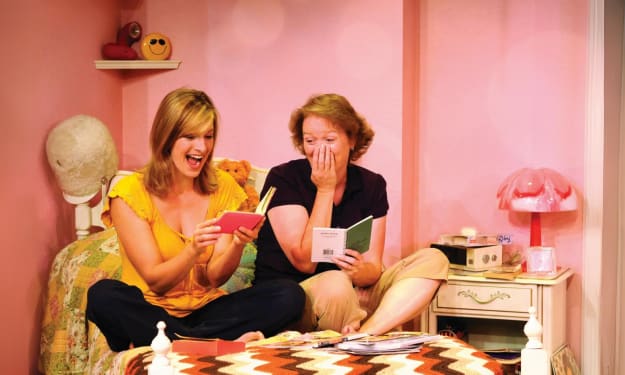How The Godfather Changed Organized Crime
The Mafia tried to stop The Godfather, but at the end of the day the mob owes a lot to media portrayals.

Before the filming of The Godfather, mob boss Joseph Colombo met with Al Ruddy of Paramount to review the script on behalf of the Italian American Civil Rights League and removed all references to the word "Mafia." But once the movie was released, it seemed that the Mob's concerns had been superfluous; while the movie did indeed have an impact on the Mafia, it did far more good than harm.
Mafiosos themselves appreciated the film greatly, and many didn't believe Puzo's claims that he wrote the book purely from research, not real-life experience. "Somebody had to be helping him. He had the whole atmosphere, the way we talked. That wedding scene—I mean, that was so real. I mean, my book isn’t a pimple on his book, and I’m in my book,” said Salvatore “Sammy the Bull” Gravano. But besides being recognizable, how else did The Godfather impact the Mafia directly?
Recruiting
The Godfather was the best recruiting tool the Mob ever had. As the first memorable tale told through the eyes of the mobsters instead of the police, the film made joining the Mob not only palatable but downright attractive to young Italian-Americans, and gave them a strong sense of pride about their heritage.
A reformed Mafioso named Dominick Montigleo settled down to watch the movie in the spring of 1972 and was instantly enraptured. A shiver ran down his spine as Michael Corleone warned "Fredo, you're my elder brother, and I love you, but don't ever take sides with anyone against the family again...ever!" The loyalty, the tradition, and the nobility of the Mob were all captured on the big screen. Don Corleone was surprisingly honorable: ruthless with his enemies but devoted to his family. Dominick soon packed up his things and returned to his Uncle Nino's embrace, and a life of organized crime.
Public Presentation
The Godfather also had an impact on how mobsters presented themselves outwardly. Michael Franzese, a member of the Colombo crime family—whose leader challenged the making of The Godfather altogether—explains how secrecy fell to the wayside as the movie gained momentum. Mafiosos started acting and dressing like just that, drawing attention to their occupation in a way unprecedented for the occupation.
People were talking about the Mafia in a way they hadn’t for years, and a lot of gangsters liked the attention. Some started dressing in throwback, 1950s fashion, while others tailored their speech and mannerisms to match Marlon Brando’s. Its most iconic phrases—“going to the mattresses,” “an offer he can’t refuse,” and “sleeping with the fishes”—entered international crime culture and lexicon in a lasting way. In more specific actions drawn from the movie, Italian Mafia enforcers left the severed head of a donkey as a warning to a baker who refused to pay protection money in 2008.
As life increasingly imitated art, The Godfather became not only how the public thought about the Mafia, but how Mafiosos thought about themselves, and aspiring mobsters took the film as more of an instruction manual than a warning.
A former Pennsylvania police officer recounts finding a cherished set of Godfather videos in the home of every mobster's house he raided, and even decades later in 2012, a bust of Al Pacino was found in the home of an Italian Mafia boss during a raid.
Making the Mob Relatable
Lifelong criminals aren't typically relatable characters, but The Godfather manages to provide deep, thoughtful insight into the lives of people you would never emotionally relate to in real life. The deeply developed characters are full of nuances, and as you watch you begin to care without realizing it.
In essence, The Godfather introduced moral ambiguity into the story of gangsters. In a world that had always been about good guys and bad guys, there were now good bad guys and bad bad guys, and the cops had no place at all. Through their vigilante mentality, the Italian-American gagster character became an icon and a hero, comparable to the cowboy, the detective, and the superhero.
Furthermore, the movie continued the myth that the American Mafia had nothing to do with drugs. In truth, while they were more discreet than other criminal groups, the Mafia was a major player in the narcotics business from its inception, specializing largely in heroin.
Reinvigorating a Dying Organization
In 1970, the Racketeer Influenced and Corrupt Organizations Act, better known as the RICO Laws, was passed. In its wake, the definition of organized crime was expanded and it was far easier to law enforcement to justify invasive surveillance; the Mafia was rapidly reduced to drawn-out court trials and second-rate crime.
In '72, when The Godfather came out, gangsters were feeling the heat and the Mob was having an identity crisis. The Godfather was a piece of nostalgia, a return to simpler times, and breathed some lifeblood and loyalty back into the organization.
By Bringing it Mainstream
Additionally, more and more mainstream figures, and even authority figures, became fans of The Godfather and other Mafia shows. This pushed these portrayals further into mainstream media, and even gave them an illusion of acceptance by the powers that be.
Former New York Mayor Rudolph Giuliani and former senator from New Jersey Robert G. Torricelli confirmed being fans of The Sopranos, while political analyst Joseph La Palombara stated that “the series, far from being yet another predictable depiction of the Mafia, is actually a portrayal of American society and of the strains of those who are in the margins.”
Framing Future Portrayals of the Mafia in the Media
So great was The Godfather's influence that subsequent mob movies had to answer Coppola’s model one way or another. They each sought to match its allegorical weight and undermining of accepted history. While shows such as Scarface and Goodfellas showed a different side of Mob life (which was likely more accurate), the disparity was always questioned and The Godfather was long considered the authority.
It Therefore Improved the Italian-American Stereotype As a Whole
While The Godfather perpetuated the stereotype of Italian-Americans as mobsters, it actually improved it somewhat by lightening the attitude towards mobsters as a whole. Ironically, the stereotype of the Italian as a gangster has helped Italian-Americans break out of the margins.
To a large degree, Italian Americans owe their high visibility in American popular culture to the gangster image so many deplore. In other words, if the Mafia myth peters out, it could mean the end of the Italian-American as a protagonist in our pop culture.
About the Creator
Chelsea Lynne
Enthusiastic bunny lover. Member of Diet Coke anonymous. Still trying to figure out what Type B means.






Comments
There are no comments for this story
Be the first to respond and start the conversation.